There are years in which you are a stranger to yourself. This was one of them. I stopped keeping to-do lists, forgot obligations, hit pause on making sense of my life: why I cried when I should have been happy, why I grew angry or listless, why convictions I’d held no longer convinced even me. It was the last year of my third decade on this earth, and it seems that with every passing year I grow increasingly alien to that earth, or it to me. A fragmented year.
This was the year I moved to San Francisco for the third time, ambivalent. A bizarre place. Nowhere else can the simple act of buying snacks or going to a day job trigger in me the question, How to live?, or perhaps, How to live as a human?, or, What is a human?, or, How is humanity defined in a place of enormous income disparity and mind-boggling callousness as well as beauty? I’m not sure we all share the same definition of human these days. 
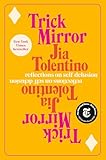

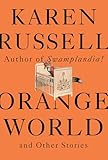

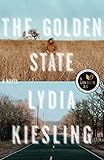






 I’m not sure that, were I to rap politely on the skulls of those beside me on Valencia Street or in the backseat of my rideshare, I would hear flesh rather than a more synthetic response. A surreal place. In trying to make sense of it, I found conversational partners in Jenny Odell’s How to Do Nothing, Sarah Rose Etter’s The Book of X, Jia Tolentino’s Trick Mirror.
I’m not sure that, were I to rap politely on the skulls of those beside me on Valencia Street or in the backseat of my rideshare, I would hear flesh rather than a more synthetic response. A surreal place. In trying to make sense of it, I found conversational partners in Jenny Odell’s How to Do Nothing, Sarah Rose Etter’s The Book of X, Jia Tolentino’s Trick Mirror.





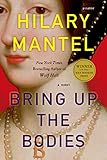


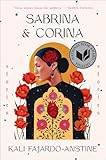


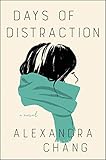 This was the year I got engaged, and though publicly I kept it low-key, privately I gave myself license to obsess over my favorite obsession: the impossible paradox of being a good parent in a very bad world. I found dark and delightful and intelligent company in Louse Erdrich’s Future Home of the Living God, Karen Russell’s Orange World, Alex Ohlin’s Dual Citizens, Lydia Kiesling’s The Golden State, Meng Jin’s forthcoming Little Gods. I sobbed through Mira Jacob’s Good Talk. Though I doubt I want children, I have a perverse desire to marinate in the idea—maybe because children seem to bring with them a sense of anticipatory loss, and so a child might be a tangible thing on which to pin the ache I feel anyway.
This was the year I got engaged, and though publicly I kept it low-key, privately I gave myself license to obsess over my favorite obsession: the impossible paradox of being a good parent in a very bad world. I found dark and delightful and intelligent company in Louse Erdrich’s Future Home of the Living God, Karen Russell’s Orange World, Alex Ohlin’s Dual Citizens, Lydia Kiesling’s The Golden State, Meng Jin’s forthcoming Little Gods. I sobbed through Mira Jacob’s Good Talk. Though I doubt I want children, I have a perverse desire to marinate in the idea—maybe because children seem to bring with them a sense of anticipatory loss, and so a child might be a tangible thing on which to pin the ache I feel anyway.
This was the year I was so paralyzed by anxiety that only horror could shake me out of it. In the summer, my non-American partner was exiled in Mexico for an unspecified amount of time, awaiting opaque “further processing” on his routine visa run. On my trip back alone, the only book that could distract me was Lee H. Whittlesey’s Death in Yellowstone—at least we weren’t being boiled alive or eaten by bears! I read Junji Ito’s Uzumaki, Sarah Moss’s Ghost Wall, Megan Gidding’s forthcoming Lakewood, Brian Evenson’s Song for the Unraveling of the World. Meanwhile, I practiced pacing my apartment while voicing the very worst possibilities: I could quit my job and move to another country! I could sell our needy puppy! I could delete my digital presence and become a hermit! How soothing to twist reality into its most nightmarish shape, and then study it.
This was the year I sought to lose myself in worlds I’d visited before. I reread sagas: Ursula Le Guin’s Tehanu from the Earthsea Cycle, Cynthia Voigt’s Elske from the Tales of the Kingdom series, and George R. R. Martin’s entire A Song of Ice and Fire series (as far as it exists; George, please). The escapism is not lost on me. Closer to home, I reread Jhumpa Lahiri’s Interpreter of Maladies and Unaccustomed Earth—more than one reread, in the case of certain stories. “As ordinary as it all appears,” Lahiri writes of the immigrant experience of shifting from one world to another, “there are times when it is beyond my imagination.”
This was the year I grieved and found solace in books that peered closely at the texture of daily, mundane grief. I read Chia-Chia Lin’s The Unpassing and Rowan Hisayo Buchanan’s Starling Days, and Miriam Toews’s strangely hilarious All My Puny Sorrows.
This was the year I looked for joy in the last pure place: in syllables. I read Patrick DeWitt’s Undermajordomo Minor and Jamil Jan Kochai’s 99 Nights in Logar, in which syntax is sheer delight. I reread Hilary Mantel’s Wolf Hall and Bring Up the Bodies on a solo writing trip to Hiroshima where, alone in my hotel with a sea view and two beds, no one minded if I occasionally threw the book across the room to yell WHAT THE FUCK when metaphors got too good. Intending it as mourning, I reread Toni Morrison’s Beloved the day the news of her death broke. I felt only elation. It is a perfect book. It is new every single time, as if the language is being birthed in radical shapes as you read—you can’t help but celebrate the life in it.
This was the year I stopped assuming I could see how things would turn out and cozied up to ambiguity. I read books that, rather than force a sweeping lesson, do what good friends do: hold space for complexity. I read Brandon Taylor’s forthcoming Real Life and T Kira Madden’s Long Live the Tribe of Fatherless Girls, in which endings are not ends. I reread the lyrical puzzle box that is Michael Ondaatje’s Divisadero. I read collections whose individual pieces fragmented, overlapped: Kali Fajardo-Anstine’s Sabrina & Corina, Esmé Weijun Wang’s The Collected Schizophrenias. I read Sarah Elaine Smith’s Marilou Is Everywhere and Alexandra Chang’s forthcoming Days of Distraction, their narrators keeping me company in my state of persistent bemusement. Maybe it’s enough, these books say, to live with integrity through a day, a paragraph, a sentence.
This was the year in which I wondered what happens to women’s rage and hurt when it is no longer as fresh as it was in, say, 2016. What happens as time passes, what ferments or crusts or festers. I read Shelly Oria’s Indelible in the Hippocampus and Carmen Maria Machado’s In the Dream House and Miriam Toews’s Women Talking. One of the first books I read this year was Susan Choi’s Trust Exercise, a real mindfuck of a book, too smart and too cynical and too exacting to give its reader the easy gift of catharsis. It won’t let me forget it. I don’t want to forget.
In 2019, I stopped reading more books than I ever have before; life is too fucking short. The books that held my attention this year—that reached out to me—are capsules of strangeness, of varied extremity; what they don’t do is try to convince me that everything is okay. That was a form of companionship I needed very much.
More from A Year in Reading 2019
Don’t miss: A Year in Reading 2018, 2017, 2016, 2015, 2014, 2013, 2012, 2011, 2010, 2009, 2008, 2007, 2006, 2005









